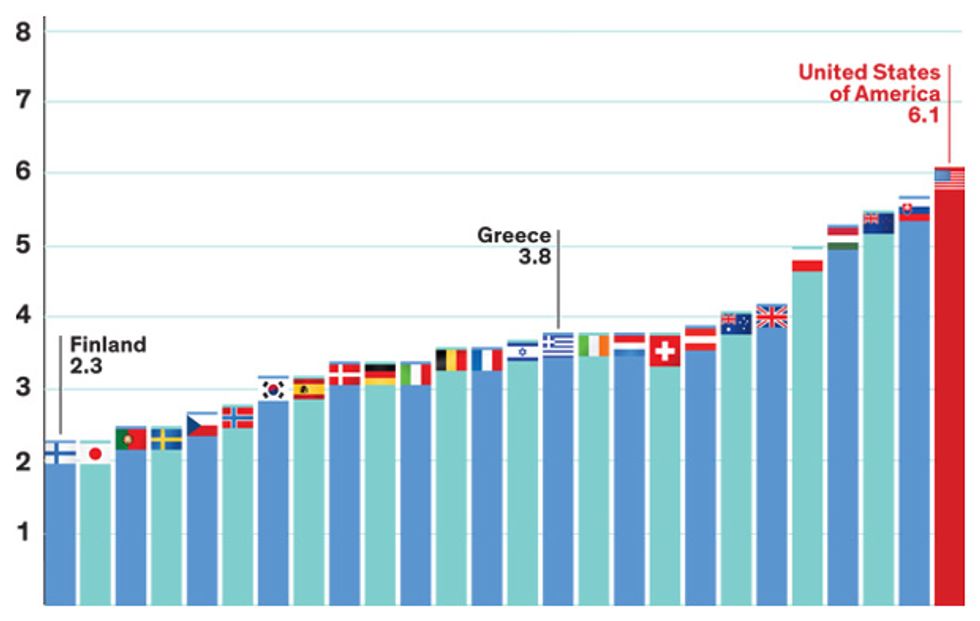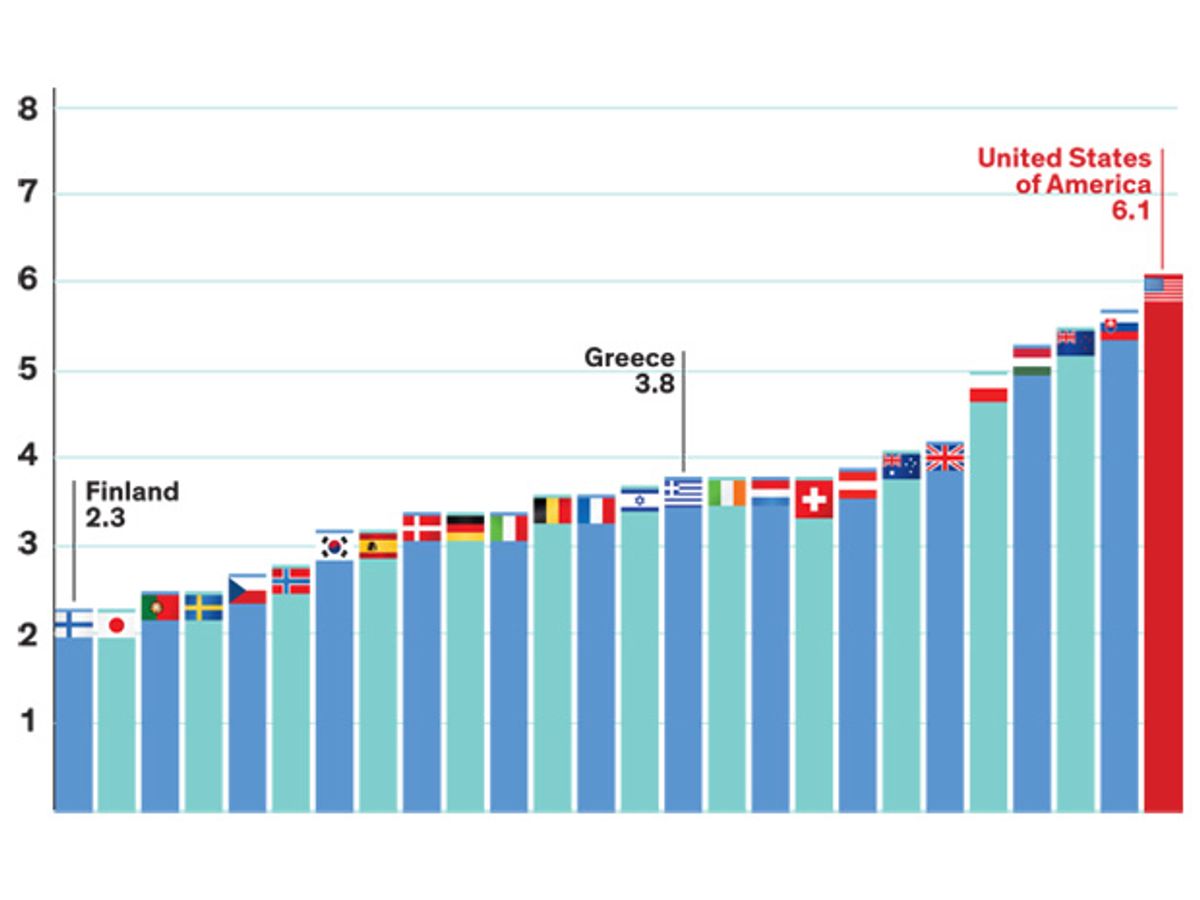
Belief in “American exceptionalism”—that unique blend of ideals, ideas, and love of liberty made so powerful by great technical and economic accomplishments—is alive and well. Even President Obama, a reluctant endorser to begin with, has come around. Early in his presidency (in April 2009), he affirmed his belief by essentially denying it: “I believe in American exceptionalism, just as I suspect that the Brits believe in British exceptionalism and the Greeks believe in Greek exceptionalism.” By May of 2014, he had relented: “I believe in American exceptionalism with every fiber of my being.”
But such proclamations mean nothing if they cannot stand up to the facts. And here what really matters is not the size of a country’s gross domestic product or the number of warheads or patents it may possess but the variables that truly capture its physical well-being and educational standard. These variables are simply life, death, and knowledge.
Infant mortality is an excellent proxy for a wide range of conditions including income, quality of housing, nutrition, education, and investment in health care. Very few babies die in those affluent countries where people live in good housing and well-educated parents (themselves well nourished) feed them properly and have access to medical care. How does the United States rank among the world’s roughly 200 nations? The latest available comparison (for 2010) shows that with 6.1 of every 1,000 live-born babies dying in the first year of life, the United States does not figure among the top 25 nations. Its infant mortality is far higher than in France (3.6), Germany (3.4), and Japan (2.3). And the U.S. rate was 60 percent higher than in Greece, a country portrayed in the press as an utter basket case.
Excusing that very poor rating by saying that the European countries have homogeneous populations does not work: Modern France and Germany are full of recent immigrants (just spend some time in Marseille or Düsseldorf). What matters more is parental knowledge, good nutrition, the extent of economic inequality, and access to universal health care, the United States being (notoriously) the only modern affluent country without the latter.
And looking at the journey’s end gives an almost identically poor result: In 2013, U.S. life expectancy ranked 34th worldwide, an average of 79 years for both sexes, which is—again—behind Greece (81), as well as Portugal (81) and South Korea (82). Canadians live three years longer on average, Italian men four, and Japanese women (at 87) six years longer compared to their U.S. counterparts.
Educational achievements of U.S. students (or a lack thereof) are scrutinized with every new edition of the Organization for Economic Co-operation and Development’s Program for International Student Assessment, or PISA. The latest results for 15-year-olds show that in math, the United States ranks just below Russia, Slovakia, and Spain, but far lower than Canada, Germany, and Japan. In science, U.S. schoolchildren place just below the mean PISA score (497 versus 501); in reading, they are barely above it (498 versus 496)—and they are far behind all the populous, affluent Western nations. PISA, like any such study, has its weaknesses, but large differences in relative rankings are clear: There is not even a remote indication of any exceptional U.S. educational achievements.
Some readers might find these facts discomforting, but there is nothing arguable about them. In the United States, babies are more likely to die and high schoolers are less likely to learn than their counterparts in other affluent countries. Politicians may look far and wide for evidence of American exceptionalism, but they won’t find it in the numbers, where it matters.
